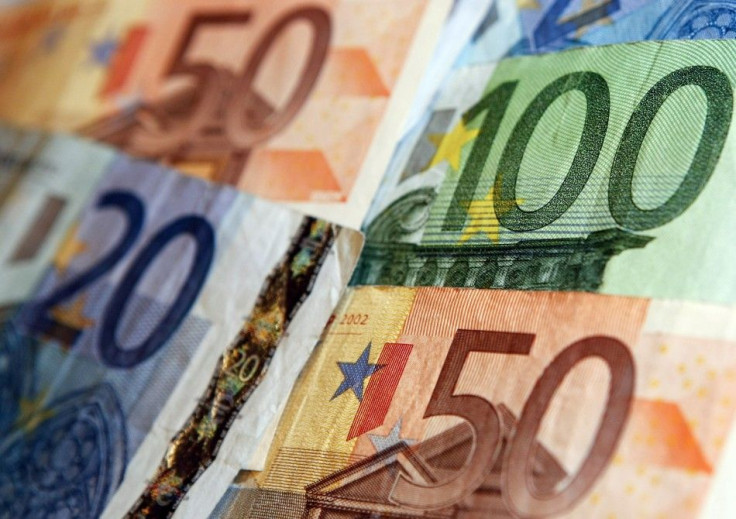ECB Floods World Financial System With €529.5 Billion in Loans

The European Central Bank gave the world's financial system a €529.5 billion ($712 billion) Leap Year Day gift, providing financial institutions with that amount in 1 percent-interest, three-year loans this week, the bank announced Wednesday.
The lending action had been widely expected by the market, although the amount to be loaned was unknown.
"It was exactly the right amount," Tobias Blattner, eurozone economist for Daiwa Capital Markets told CNN Money. "It was not too high so as to raise concern about the health of banks' balance sheets, but at the same time it was not too low to raise concerns about the ability of banks to continue to purchase the bonds of fiscally stressed countries."
Market observers, who forecasted the take-up in loans from the euro zone's central bank could range anywhere from €300 billion to €1 trillion, had worried the latest liquidity injection could send negative signals to the market if it either underperformed or exceeded certain benchmarks.
Besides the concerns raised by Blattner, others had pointed out a very large amount of lending could prompt political backlash against Europe's central bankers who would be seen as supporting bank profits with their largesse.
The ECB began its second round of lending Tuesday to aggressively increase liquidity in the euro zone financial system, and announced the results of its operation at 5:20 New York time Wednesday. The liquidity is meant to prop up the tattered European banking and sovereign credit funding systems, and follows a first round disbursed in December 2011 to 523 banks that totaled €489 billion ($658 billion).
Estimates of the amount to be taken up by banks this time around varied widely, with surveys of investors and other market participant expectations consistently overstating the estimates given by bank-affiliated strategists. The consensus view was that the level of lending would be close to, but somewhat less, than during the previous round of loans. Those expectations were exceeded, as both the amount lent out and number of participating institutions increased.
Part of the reason for the increase in lending this time around is likely the fact the ECB softened rules regarding what it would accept as collateral for the loans.
"Collateral requirements have never been broader," Jürgen Odenius, chief economist at buy-side asset manager Prudential Fixed Income, said.
The liquidity injection livened up financial markets on Wednesday. Driving up the price of certain asset classes, particularly sovereign bonds, is seen as one of the secondary motivations of the ECB action. When the prices of country issued notes go up, yields go down, making it relatively less expensive for those countries to finance their deficits.
Ten-year euro area government bond spreads to Germany, except for the Netherlands and Finland, were down by four basis points to seven basis points, and markets were not disappointed, Artis Frankovics, a fixed income research strategist with Japanese zaibatsu Nomura, said in a note to clients. He cited the "spread" metric to gold-standard German bunds used to gauge the health of the European sovereign credit market.
The injection of liquidity does not address the fundamental issues behind the broken credit system in Europe, which has several insolvent nations at risk of becoming illiquid and is seeing loan growth to non-financial corporations decline. All other things being equal, it is also likely to cause the continent's currency, the euro, to lose value.
"Conventional wisdom suggests increased liquidity supply should weaken a currency, but the (euro) has not weakened aggressively since the first three-year LTRO (long-term refinancing operation). In our view, this is partly because the LTRO was a response to increased liquidity demand. The second three-year LTRO is likely to be more of a liquidity supply shock and weaken the (euro)," Paul Robinson, a foreign exchange research strategist at Barclays, wrote in a note to clients, noting the bank is recommending clients short the euro.
"Liquidity can only do so much," Odenius, the Prudential economist said, noting the main effects would be to raise nominal asset prices and "buy more time" for continent politicians.
But eventually, it would have other effects.
"It is like a tide that can raise all boats. That's to say the water finds its way into any hole and any crease in any asset class," he said.
© Copyright IBTimes 2024. All rights reserved.




















